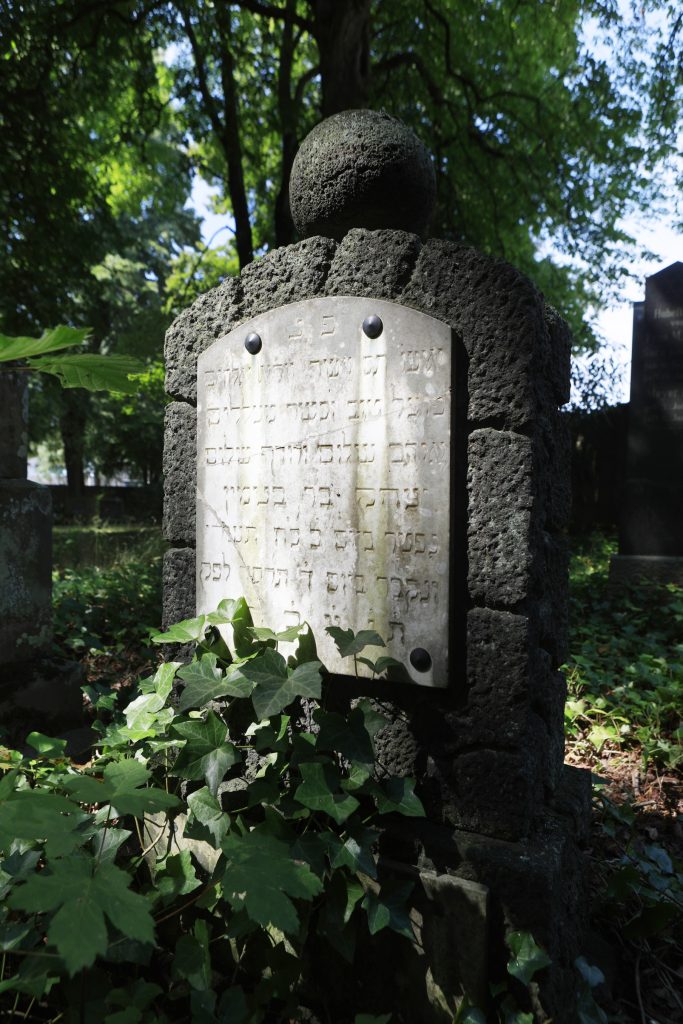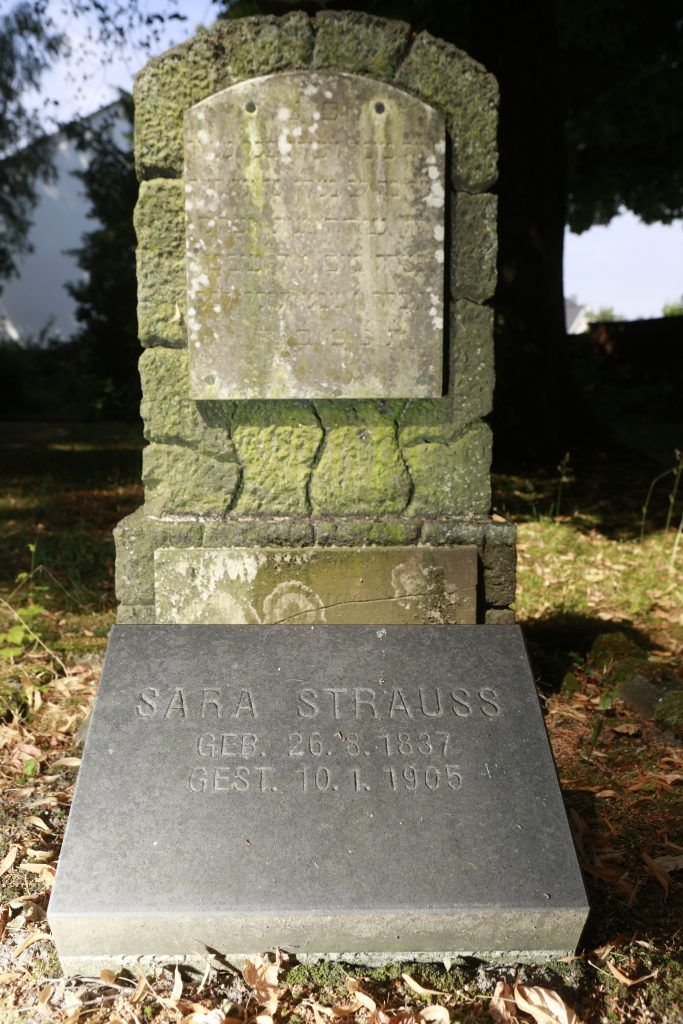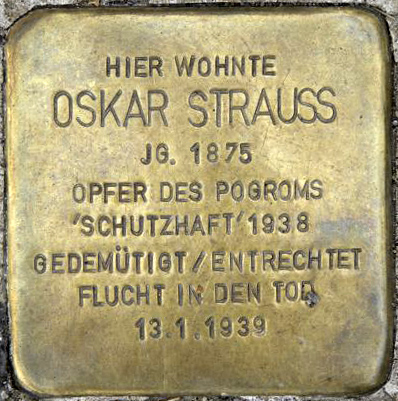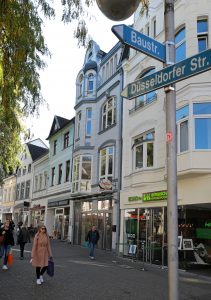Stop 2: The Strauss Family
Düsseldorfer Str. 58 – go to map – go to starting point
Oskar Strauss was born in Bochum on 8 September 1875. He was one of nine children to merchant Isaac Strauss and his wife Sara. Isaac Strauss came from a long-established Jewish family of Solingen-Gräfrath. Oskar, about whose childhood and youth we have no information, worked, or was trained, as locksmith and in the penknife industry at first. According to the archive of the local registry office, he lived in Essen between 1899 and 1903.
Oskar’s older brother Moritz passed away in June 1903, his father Isaac died in October that same year. Oskar temporarily moved back into his parents‘ household at Wupperstraße 9 and lived there until his mother died in January 1905. After that, he moved to Kölner Straße 118 where he ran a business for steel ware. He sold his goods on markets and trade fairs.



In 1908, Oskar Strauss became a tenant in the house of Mr. Schlingensiepen who would later become his father-in-law. The house was probably where he met his wife Marie who had been born in Solingen on 25 September 1888. The couple got married in 1913 and moved to Düsseldorfer Straße 58 where Oskar’s business was also located back then. They lived there until 1931.
The couple’s first son, Lothar, was born on 20 January 1914. Their second son, Heinz, was born on 7 January 1919. Although their mother was of Protestant faith, both children were part of the Israelite community. The young family suffered a horrible stroke of fate when Heinz died in 1926. By that time, Oskar Strauss had already lost his sister Rosa in 1916 and his brother Hermann in 1922, before his brother Adolf also died relatively young in 1931.
The family moved to Kronenstraße in 1931 and later, in June 1934, to Kiefernstraße 6 in Ohligs. When the discrimination and disenfranchisement of the Jewish population began in 1933, and with it their elimination from commercial life, Oskar Strauss’ income as a merchant of steel ware also declined significantly. The family’s relatively convenient economic position soon turned into a rather modest one. And it came even worse: son Lothar, who had just registered a business as merchant for floristry supplies in 1936, died of tuberculosis at the municipal hospital on 31 July 1936. The number of deaths in Oskar’s life must therewith have reached a level that made the burden almost impossible to bear.
Meanwhile, the Nazi regime, implementing its policies of discrimination and persecution, hardly left him any breathing space. In the wake of the “Kristallnacht”, Oskar Strauss was arrested on 10 November 1938 and spent one night in “protective custody” at Solingen’s police prison. From January 1939 onwards, Jews were forced to adopt the first names “Israel” or “Sara”. Oskar Strauss subsequently saw only one way out: on 13 January 1939, he threw himself in front of a train at the rail route between Ohligs and Cologne. He was laid to rest on Solingen’s Jewish cemetery. In the registry of funerals, it says [in translation]: “His life and death led offside the usual road. He departed this life voluntarily.”

Marie Strauss henceforth lived in poor circumstances. She started working as housekeeper at the municipal hospital and re-married in 1944. She lived in Solingen until she died on 18 November 1982.
